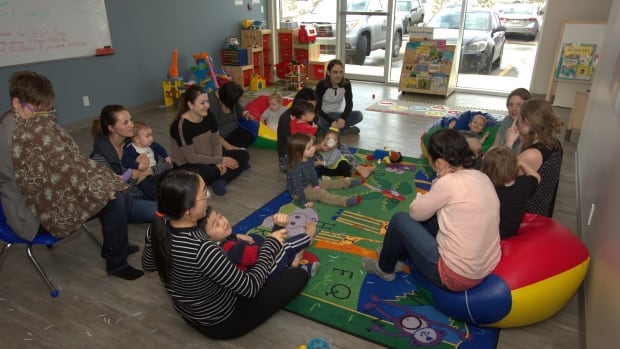
As more Albertans turn to free family and community programs, operators say funding hasn't kept up
CBC
A record number of Albertans taking advantage of free family and community programs is putting strain on the financially strapped networks that run them.
Family Resource Networks — hubs that offer a variety of programs and services for youth, parents and families — launched in 2020 after funding for Parent Link Centres was cancelled. Alberta has 70 FRNs, which are linked to more than 100 different agencies.
According to a recent report, the number of people accessing FRN services increased by 63 per cent last year, rising from 78,700 to 128,300.
Jasmine Hayes, the team lead for the FRN within the Clareview Community Recreation Centre in Edmonton, said the statistic does not surprise her because she and her colleagues have seen more and more parents struggling to pay for rent, bills and groceries.
"We're seeing families when they're in crisis," she said.
Operators say record population growth and the rising cost of living have likely contributed to the increase in demand for their services.
Kathryn Way, the community projects coordinator for the Parkland & West Family Resource Network, said staff have seen more newcomers arrive and met more parents and young people struggling with their mental health post-pandemic.
The report also said an increase in families self-referring to the networks indicates more community awareness of the programs.
Increased demand has led to longer waitlists for some FRN programs.
The YMCA of Northern Alberta, which is the hub organization for a family resource network in Edmonton and part of networks in the Grande Prairie area and Fort McMurray, said in an emailed statement that families have to wait to access their services. The waitlist recently doubled in Fort McMurray.
Shari-Lynne Gidyk, executive director of the Family Futures Resource Network, which has four locations in south Edmonton, said some programs are filling up within one minute online and waitlists can be 80-people long.
The FRN's home visitation program, which supports parents for five years, currently has a six-month waitlist, she said.
"I do have a fear that if they're sitting on the waitlist, and they're not able to get into the program, then they don't come back again," Gidyk said.
FRNs have also seen operating costs soar at the same time as demand for services.





















 Run 3 Space | Play Space Running Game
Run 3 Space | Play Space Running Game Traffic Jam 3D | Online Racing Game
Traffic Jam 3D | Online Racing Game Duck Hunt | Play Old Classic Game
Duck Hunt | Play Old Classic Game